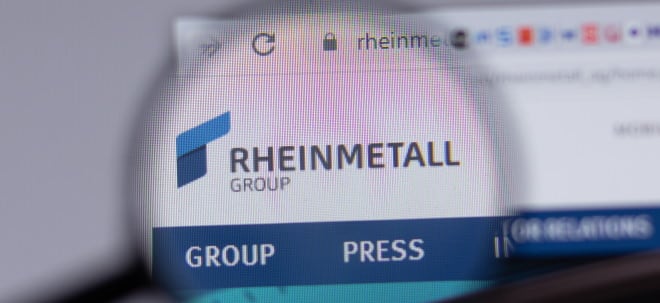FlyteHealth Obesity Care Program Demonstrates Cost Avoidance and Noteworthy Medication Adherence in Year-One Outcomes
NEW CANAAN, Conn., May 28, 2025 /PRNewswire/ -- FlyteHealth, a leading virtual cardiometabolic care provider, announced year-one outcomes from its Comprehensive Obesity Care program in an analysis performed on its customer, the State of Connecticut, which implemented the obesity care program for its employee health plan consisting of employees and retirees. In the study, FlyteHealth's approach was found to have an 86% adherence rate among new GLP-1 users and cost avoidance of up to $1.2 million within the pilot year of the program. This independent study was conducted by the actuarial consulting firm Milliman. The analysis examined the program's impact on pharmaceutical utilization, identifying immediate pharmacy benefit cost avoidance and noteworthy rates of treatment adherence among new GLP-1 utilizers in the State of Connecticut employee health plan.
FlyteHealth's cardiometabolic offering delivers individualized therapy for obesity and three key cardiometabolic comorbidities (prediabetes, hypertension, and hyperlipidemia) through a patent-pending AI algorithm that informs patient-specific treatment plans. Based on over 30 years of clinical obesity care expertise from world-renowned obesity expert Dr. Louis Aronne, M.D., the treatment model combines personalized virtual care from a multidisciplinary team — including board-certified obesity medicine physicians, nurse practitioners and dietitians — precision pharmacotherapy, and intensive lifestyle coaching. The FlyteHealth digital platform offers personalized patient engagement and progress monitoring that incorporates data from wearables and connected devices.
Other studies have found that new anti-obesity medications, particularly GLP-1s, have demonstrated remarkable effectiveness in clinical trials, but many health plans and payers are reluctant to cover these high-priced medications, citing soaring costs, poor adherence and improper utilization. Real-world data show that only 32% of commercially insured patients remain on GLP-1 therapy after one year, and just 27% are adherent to prescribed dosing, leading to significant medication waste and diminished long-term outcomes.1
FlyteHealth's approach addresses these gaps by drawing on the clinical and behavioral expertise of the FlyteHealth team and incorporating AI-driven personalized self-management tools for managing medications, promoting adherence, and providing ongoing coaching through the FlyteHealth maintenance program.
"Employers and payers are rightly concerned about costs and the best way to use their dollars while ensuring access to innovative treatments that bring real improvements to people's health and well-being," said Cheryl Pegus, MD, MPH, FlyteHealth executive board chair. "We at FlyteHealth are committed to supporting that work and delivering cost-effective solutions with proven results."
The State of Connecticut's self-insured employee health plan, which saw its pharmacy benefit costs skyrocket following the introduction of GLP-1 coverage in 2020, partnered with FlyteHealth in 2023 to launch a pilot of the Comprehensive Obesity Care program for plan members who met the eligibility criteria for obesity treatment.
"This partnership with FlyteHealth is a clear example of how forward thinking, evidence-based innovation can improve people's lives while also protecting taxpayer dollars," said Sean Scanlon, Comptroller for the State of Connecticut. "Our goal is to deliver the highest standard of care to state employees and retirees, and the results of this pilot program show we can do that in a way that's both clinically effective and fiscally responsible."
The independent analysis by Milliman estimated that FlyteHealth's integrated clinical and medication management model helped the State of Connecticut avoid up to $1.2 million in anti-obesity medication costs within the first year of the program.
The study highlighted the program's focus on prescribing according to BMI, based on the clinical expertise of the FlyteHealth team, with the highest-BMI patients receiving the highest-cost treatments.
A standout finding in the FlyteHealth population was a noteworthy adherence rate of 86% among new GLP-1 users. Adherence is critical to the realization of long-term health benefits and medical cost savings.
While the Milliman study assessed only pharmaceutical outcomes and did not measure long-term return on investment or patient outcomes, FlyteHealth program participants also saw improvement in key health outcomes according to FlyteHealth's own program participant reporting. Participants experienced improvements in a variety of biometrics, including a 7.2% reduction in elevated HbA1c and a 9.4% reduction in blood glucose, and an average of 13%-16% weight loss over 12 months. In addition, care teams trained in obesity medicine referred comorbidities such as sleep apnea, metabolic dysfunction-associated steatohepatitis, and cardiovascular disease across the populations.
"At FlyteHealth, we've reimagined cardiometabolic care by combining our patent-pending AI engine, clinical expertise and precision prescribing to deliver truly personalized treatment at scale," said Sloan Saunders, CEO of FlyteHealth. "Milliman's independent analysis validates our model's ability to achieve noteworthy patient adherence, optimize resource use and generate meaningful short-term cost avoidance for a large, self-insured employer plan. Our mission remains focused: transforming outcomes through scalable, AI-driven care that delivers measurable health and economic impacts – while laying the foundation for long-term medical cost reductions." Future evaluations are planned to assess broader medical cost offsets and impacts on total cost of care.
The full Milliman study and methodology can be downloaded here.
For more information about FlyteHealth, please visit www.flytehealth.com.
About FlyteHealth
FlyteHealth delivers a precision cardiometabolic care solution spanning obesity, diabetes, hypertension and related comorbidities using data and AI to enable cost-effective, scalable and self-sustaining treatment models nationwide. FlyteHealth was founded by leaders in clinical obesity management and was built on a foundation of robust data and years of hands-on clinical expertise. FlyteHealth's strategy combines AI-powered clinical intelligence with smart technology and decision support tools that translate complex evidence into seamless care delivery with methodologies built for real-world speed. FlyteHealth focuses on improving measurable outcomes, and every aspect of its model is designed for cost-effectiveness, optimizing savings while driving better engagement and patient adherence. Learn more at www.flytehealth.com.
Media Contact:
FINN Partners
Laurie Masonson
917-459-6164
laurie.masonson@finnpartners.com
![]() View original content:https://www.prnewswire.com/news-releases/flytehealth-obesity-care-program-demonstrates-cost-avoidance-and-noteworthy-medication-adherence-in-year-one-outcomes-302466456.html
View original content:https://www.prnewswire.com/news-releases/flytehealth-obesity-care-program-demonstrates-cost-avoidance-and-noteworthy-medication-adherence-in-year-one-outcomes-302466456.html
SOURCE FlyteHealth

